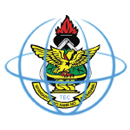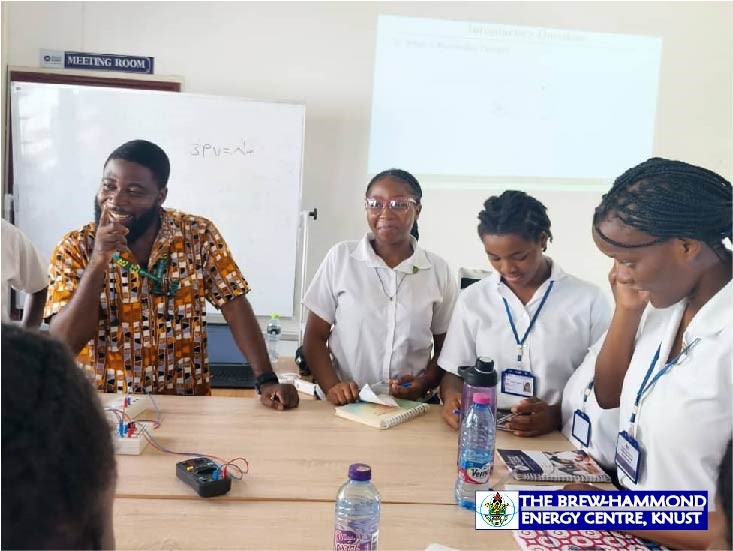Fellows from the Brew-Hammond Energy Centre at Kwame Nkrumah University of Science and Technology (KNUST) facilitated a hands-on training session for students of the African Science Academy on renewable energy. The programme, held on 7th April 2025, was organised by the Schlumberger Foundation, an independent non-profit organisation with a long-standing commitment to promoting education in Science, Technology, Engineering, and Mathematics (STEM).
As part of the training, the Fellows from the Energy Centre engaged students in interactive sessions covering key areas of science and clean energy. The training equipment were provided by the ProREG project, an initiative under the Brew-Hammond Energy Centre aimed at promoting renewable energy education and capacity building.
The solar equipment included a 10-Watt Solar Module, DC and AC bulb, a 12-Volt Battery, a 12DC-230AC Inverter, a Charge Controller, MC4 Connectors and other solar PV peripherals. The wind equipment included a Tachogenerator, Wind Machine, Resistor, Multimeter, Blades and other wind peripherals.
Key resource persons from the Centre were Dr. Lena Dzifa Mensah, Dr. Denis Edem Kwame Dzebre, and Nana Kwabena Osei. Together, they led insightful and practical sessions designed to introduce students to real-world applications of renewable energy systems.
Dr. Denis Edem Kwame Dzebre, Senior Lecturer at the Department of Mechanical Engineering, guided the students through the fundamentals of wind energy, helping them understand how wind can be harnessed to generate electricity.

Nana Kwabena Osei, Research Assistant at the Centre led the solar energy session, demonstrating how electricity is generated from solar energy using a photovoltaic (PV) module. He introduced the students to the basic principles of electricity generation and provided an overview of Ghana’s power sector.
He also highlighted the challenges associated with thermal power generation, particularly the emission of greenhouse gases (GHGs) and their environmental impacts. He explained why solar energy stands out as a viable and sustainable option, emphasising the urgent need for cleaner alternatives.
Students were given the opportunity for hands-on training on how to perform the PV system connections themselves.

